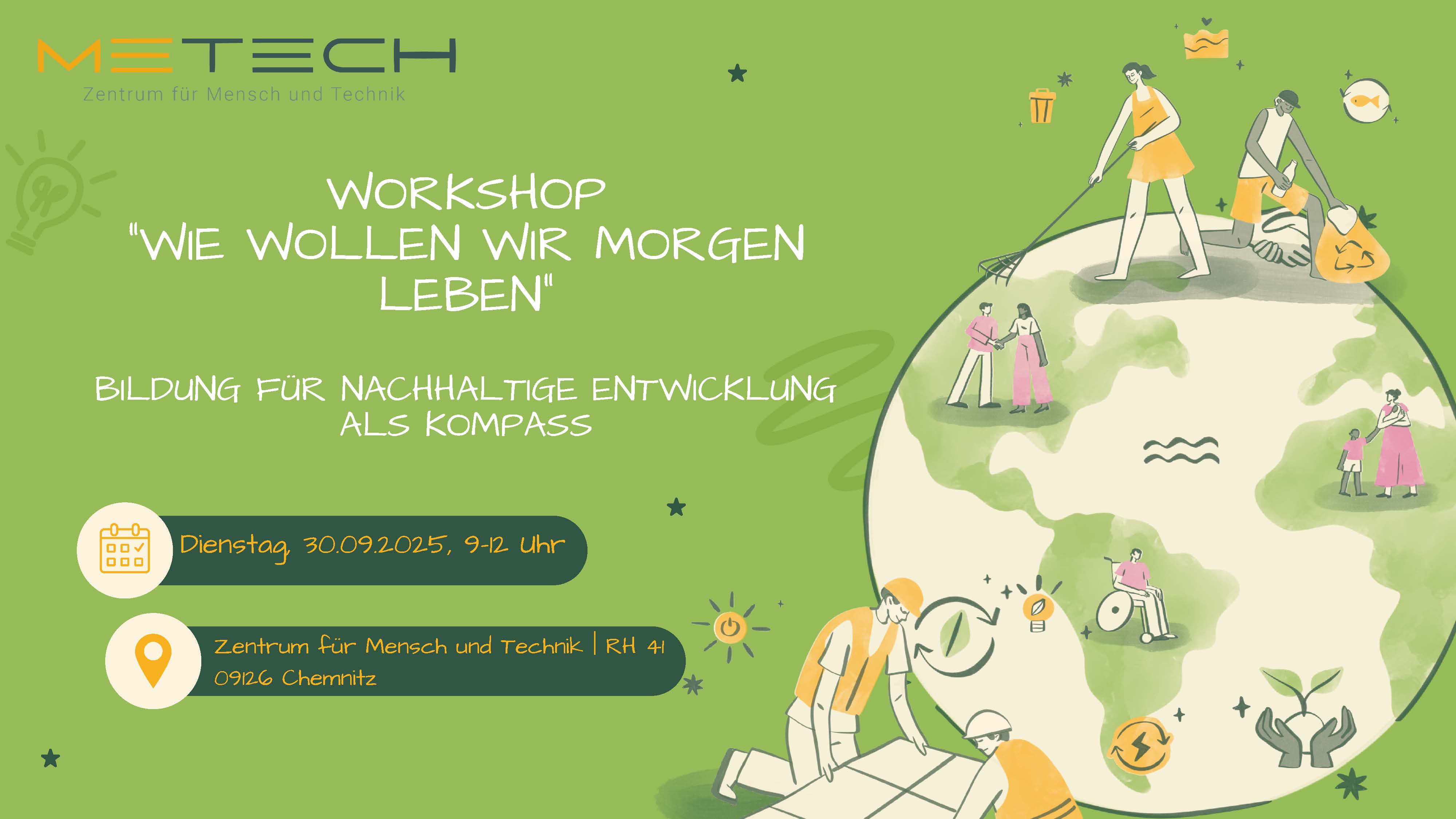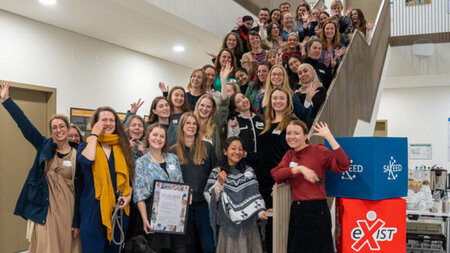Ankündigungen
BNE Workshop "Wie wollen wir morgen leben?" Bildung für nachhaltige Entwicklung als Kompass
Vor dem Hintergrund globaler Herausforderungen—Klimawandel, Ressourcenverknappung und soziale Ungleichheit—gewinnt die Frage nach der Gestaltung unseres zukünftigen Zusammenlebens an Dringlichkeit. Bildung fungiert hierbei als zentraler Hebel: Sie stärkt Urteils- und Handlungskompetenzen, ermöglicht nachhaltige Entscheidungen und fördert Verantwortungsübernahme. Bildung für nachhaltige Entwicklung (BNE) bietet dafür einen konzeptionellen Orientierungs- und Handlungsrahmen.
Workshopinhalte:
- Einführung in die Bildung für nachhaltige Entwicklung (BNE)
- Diskussion: Relevanz und Herausforderungen in verschiedenen Fachrichtungen
- Praktische Übungen zu nachhaltigkeitsorientierten Lehrmethoden
- Austausch von Best Practices und Erfahrungen
Wann: Donnerstag, 30. September 2025, 9 - 12 Uhr
Wo: Zentrum für Mensch und Technik, RH 41, 5. Etage, 09126 Chemnitz
Zielgruppe: Alle Interessierten unabhängig von Fachrichtung und Erfahrungsgrad
Anmeldungen unter: kontakt@metech.tu-chemnitz.de

2025 Workshop on 'AI for understanding human behavior in professional settings' (BEHAIV)
At the 2025 European Conference on AI - ECAI2025 .
A substantial amount of research has been devoted to the role of AI in understanding and supporting people at their work.There are mature AI solutions to support medical practitioners for diagnosis, decision-making, treatment planning and patient monitoring; to support managers with logistics, decision-making, financial planning and auditing; and teachers with e-learning platforms and student performance assessment tools. However, many solutions, even interactive ones, can neither perceive nor anticipate the condition of the working professionals - including fatigue, distress, and cognitive overload.
Goal of BEHAIV is to bring together researchers working on AI in support of professionals, to understand their expectations and information demands during decision making, to help them anticipate signals calling their attention, to detect fatigue and disturbances, to promote safety and satisfaction at work. Examples of professionals are: teachers who need to deal with foundational models used by their students, teachers who want to exploit AI in their courses, doctors who interact with models during treatment planning, managers who receive AI-collected pieces of information and need to make reliable decisions on them.
-
AI for Decision Support
- AI for the Detection of Uncertainty, Fatigue, Cognitive Bias
- AI for Human Activity Anticipation and Prediction
- Explainable AI, Counterfactuals, Contrastive Learning
- AI to Promote Safety at Work
- Neurocognitive or Psychological Approaches for Behavior Understanding
- Continuous learning for Decision Dupport
- Affective Computing and Emotive User Interfaces
- AI for the Analysis of Living and Working conditions
- AI to support course design, tutoring, and grading
- AI to support teachers inside the classroom
-
Submission site opens: April 10, 2025
- Submission site closes (paper submission deadline): extended to June 30, 2025
- ECAI paper transfer: July 15, 2025 (ECAI notification deadline is July 10, 2025)
- Notification of acceptance: July 20, 2025
- Workshop schedule announced: August 7, 2025
- Camera-ready deadline: aligned with ECAI 2025
- Workshop date: part of the pre-conference program (October 25-26, 2025)
Supplementary materials are not permitted, but the authors are allowed to provide links to code or data. Inspection of these materials is at the reviewers' discretion, so the submitted papers must be self-standing. All submissions must adhere to the Ethics statement of ECAI 2025 (to be found under the CFP of ECAI 2025 Main track ).
Accepted and presented BEHAIV papers will be published online in CEUR-WS .
For more Information, visit the workshop website.






